MONOGRAPHS

10th monograph: Adolescence in growth: updating of the internal and external assets of positive youth development
Balsells, M. À., Urrea-Monclús, A., Fernández-Rodrigo, L., Forné, M. A. & Simó, Í.
The current vision of adolescence highlights its role as an empowering and well-being-focused stage of development, identifying competencies, values, and skills, contrasting with traditional deficit-focused approaches. Positive Adolescent Development (PAD) prioritizes strengths, proposing interventions based on internal and external assets. The evolution of the context requires rethinking characteristics and competencies to achieve PAD, proposing an update based on the “40 fundamental elements of development” from the Search Institute, emphasizing the importance of collaboration among adolescents, family, school, and community.
Topics: Adolescence and family
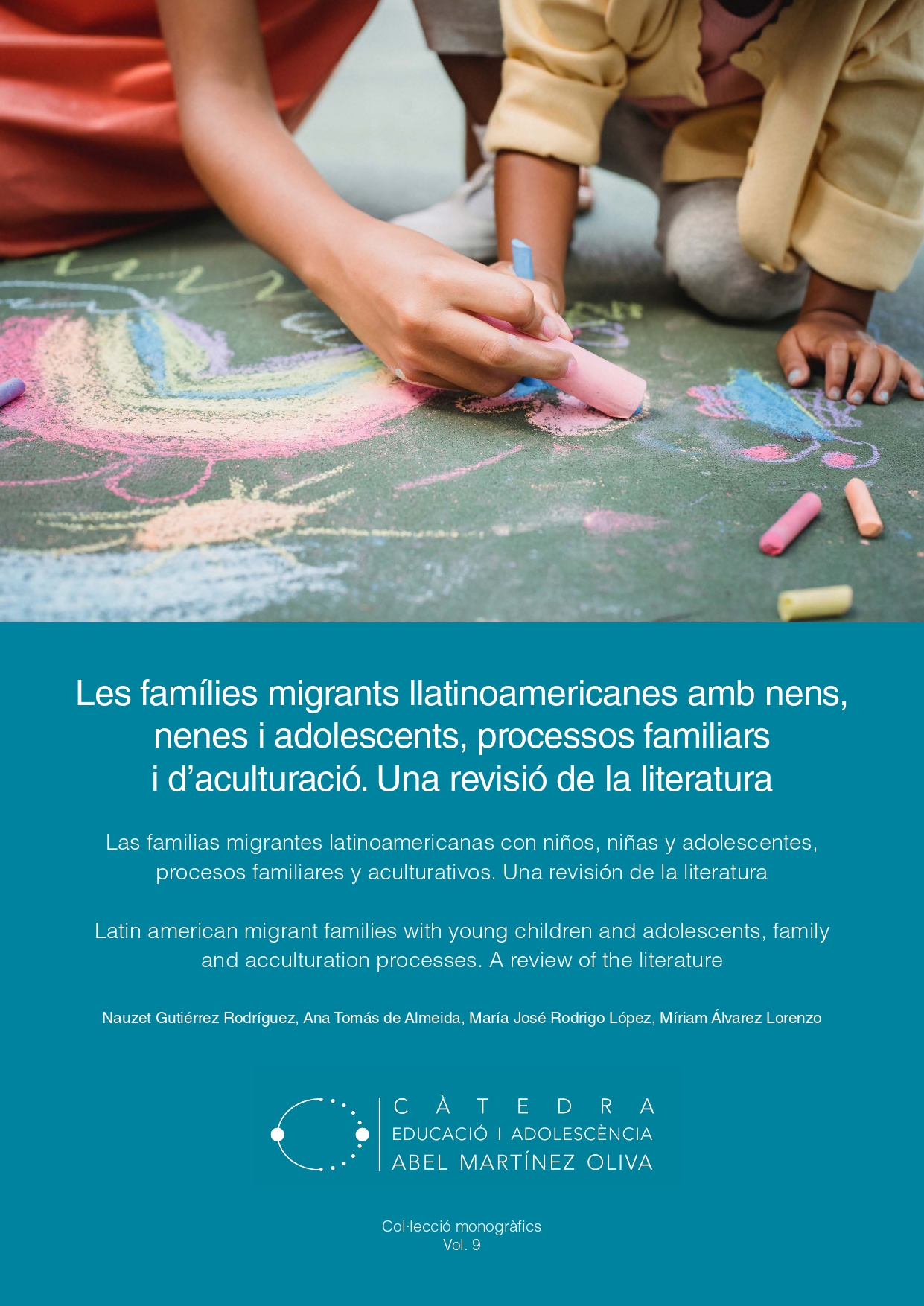
9th monograph: Latin american migrant families with young children and adolescents, family and acculturation processes. A review of the literature
Gutiérrez, N., de Almeida, A.T., Rodrigo, M. J. & Álvarez, M.
Experiencing a migration process has effects and produces changes in the parental practice of Latin American families. Individual, social and cultural variables influence this process. Delving deeper into the subject, his study has gained notoriety in the last decade and it has been shown that it is essential to continue analyzing the impact of acculturation on the parental exercise of Latin American migrant families in order to carry out effective interventions from social protection systems and develop social policies to promote the well-being of these families.
Topics: Adolescence and family
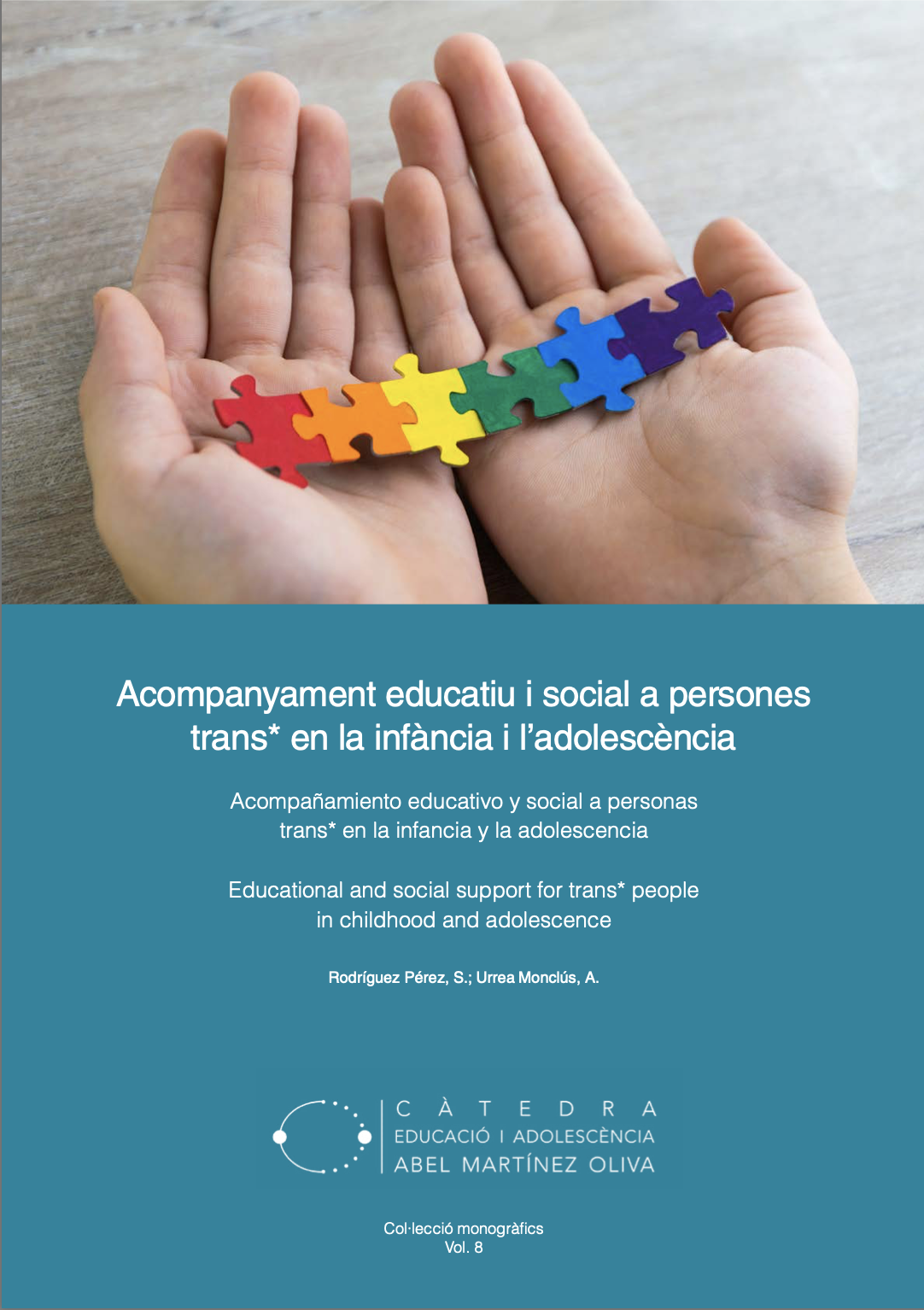
8th monograph: Educational and social support for trans * people in childhood and adolescence
Urrea Monclús, A. & Sara Pérez Rodríguez
Much of society continues to associate sexual identity with the genitals, that is, you are a boy / boy / man when you have a penis and you are a girl / girl / woman when you have a vulva. However, a person’s gender identity and sexual identity go beyond the appreciation of their external genitalia. Discrimination, exclusion and violence on the grounds of sexual identity, gender identity and gender expression often occur in our society. The well-being of trans * people depends, to a large extent, on the social understanding of the perspective of sexual identity, gender identity and gender expression of a positive view of human diversity. It is necessary to change from a pathological approach to a diversity approach in accompanying trans children and adolescents.
Topics: Coexistence in the schools | Promothing health
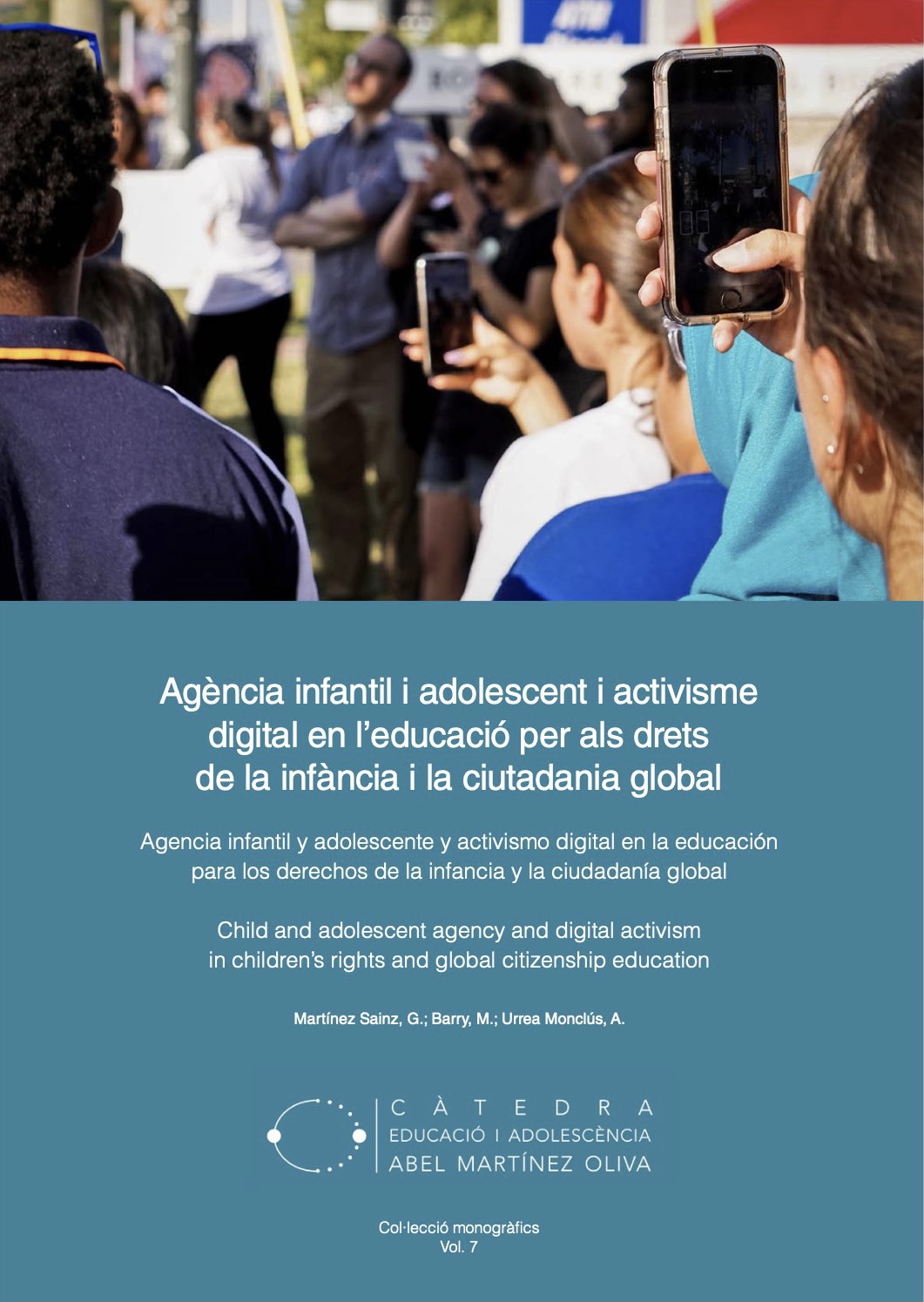
7th monograph: Child and Adolescent Agency and Digital Activism in Education for the Rights of the Child and Global Citizenship
Martínez Sainz, G .; Barry, M .; Urrea Monclús, A.
This monograph presents some recommendations on how to strategically and meaningfully incorporate digital technologies into Global Citizenship Education (ECG), which aims to empower students to get involved and take an active role in both local, national and global, to face and solve global challenges, and thus, become contributors to a more just, peaceful, tolerant, inclusive, secure and sustainable world (UNESCO, 2018, p. 6). There are key principles of the ECG that coincide with the emerging work on Digital Citizenship Education (EDC), which are identified in the present study: rights, relationships, responsibilities, identity, agency, and commitment. Teachers and educators need to be aware of the challenges that digital technologies pose in order to help children and adolescents navigate these challenges and overcome the risks involved.
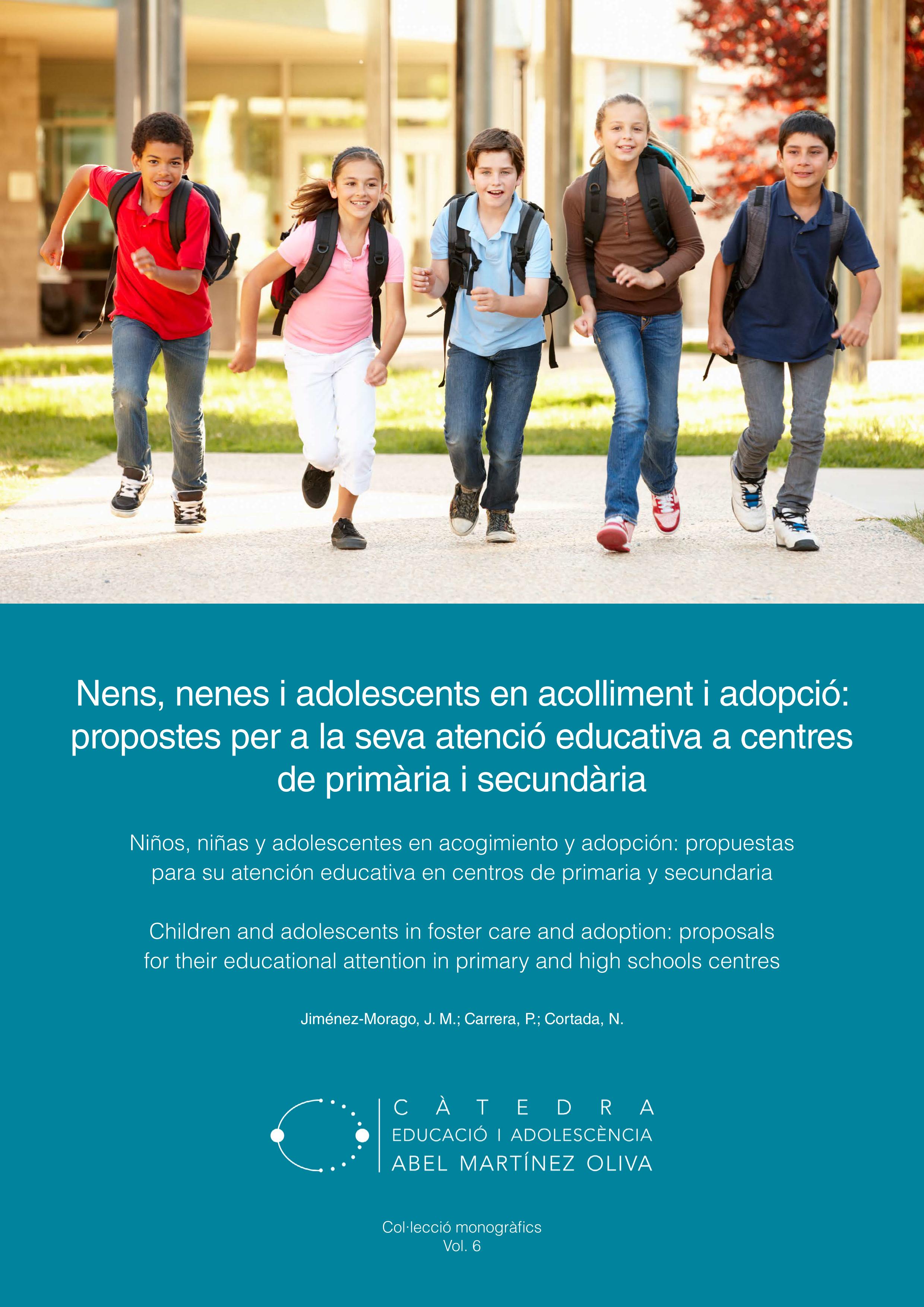
6th monograph: Children and adolescents in foster care and adoption: proposals for their educational attention in primary and high schools centres
Jiménez-Morago, J.M.; Carrera, P.; Cortada, N.
The school must facilitate the incorporation of the children and adolescents in foster care and adoption through a personalized foster care plan, which will include an initial assessment that guides educational care. A proactive plan for protection against discrimination would also be advisable, as well as a flexible evaluation system and positive disciplinary measures. Good communication and co-operation with the family or those responsible for the minor and coordination with the counseling service are also essential. The learning process will be greatly facilitated if there is a positive bond between the minor and his teacher, so it is essential to respond from understanding, support and affection, establishing clear and firm boundaries predictable and avoiding sanctions that may be perceived as rejection.
Topics: Coexistence in the schools

5th monograph: GENER@T. Socio-educational programme for the prevention of dating violence in adolescents: implementation and evaluation
Mateos, A.; Urrea, A.; Llanes, J. & Izquierdo, R.
The objective of this monograph is to present the results of an evidence-based evaluation research. This research has had two general objectives: 1. Evaluate the impact of the GENER @ T program. 2. Identify criteria of good practices for the development of preventive actions in gender violence in adolescence. Throughout the following pages, we want to respond to the work premises that have guided the search: what aspects facilitate or impede the development of the program ?; What is the type of participant with which the program is most effective ?; what impact did the program have?
Topics: Coexistence in the schools | Promothing health
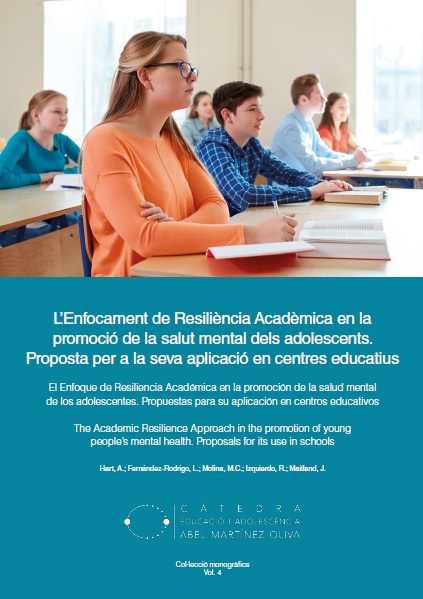
4th monograph: The Academic Resilience Approach in the promotion of young people’s mental health. Proposals for its use in schools
Hart, A.; Fernández-Rodrigo, L.; Molina, M.C.; Izquierdo, R. & Maitland, J.
Young people who enjoy good mental health are more likely to have a better academic performance and better social development. Faced with the increase in mental health problems among adolescents in Catalonia, the Academic Resilience Approach (ARA) is presented as a strategic practice for secondary education centers that involve the entire educational community. The purpose is to help young people, especially the most vulnerable, to achieve a more optimal academic performance, despite the circumstances in which they are found. The proposals to integrate ARA into secondary schools are based on the redefinition of the activities that are already being developed and on the design of new educational practices considering the elements of the Resilience Framework.
Topics: Adolescence and family | Promothing health
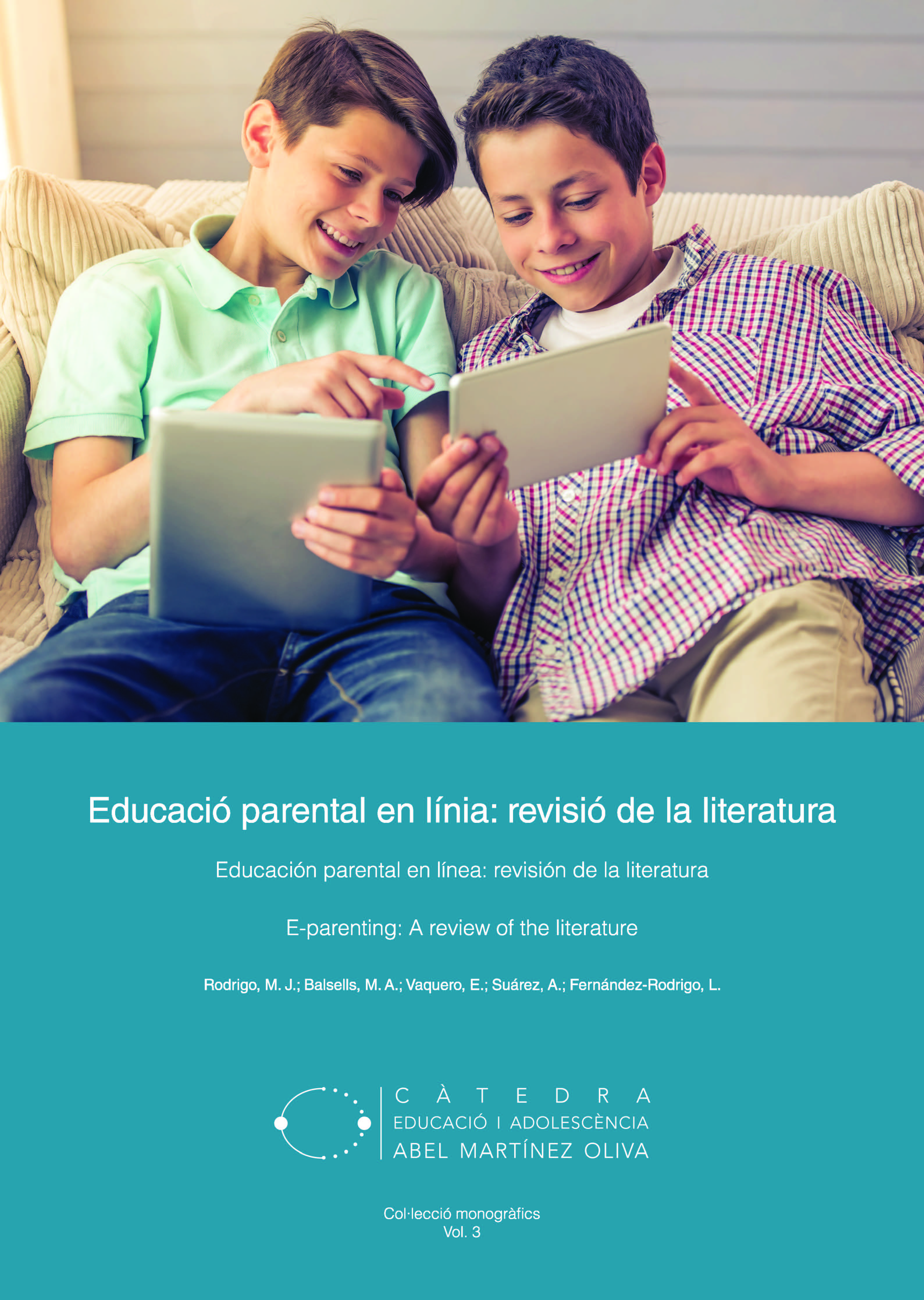
3th monograph: E-parenting: A review of the literature
Rodrigo, M.J.; Balsells, M.A.; Vaquero, E.; Suárez, A. & Fernández-Rodrigo, L.
The presence of the internet in all areas of everyday life as an information search tool has also highlighted parenting and family education. Families use the internet to look for help in carrying out parenting duties and to train themselves in parenting. Research is beginning to show evidence of the way in which these e-parenting practices should be undertaken effectively and efficiently, although a number of questions remain to be looked at more closely: What type of ICT tool is considered when developing e-parenting programs and resources?; What are the aims and characteristics of e-parenting programs and resources?; What are the benefits and limitation of online programs and resources for participating families?
Topics: Adolescence and family | Information and communication technology (ICT)
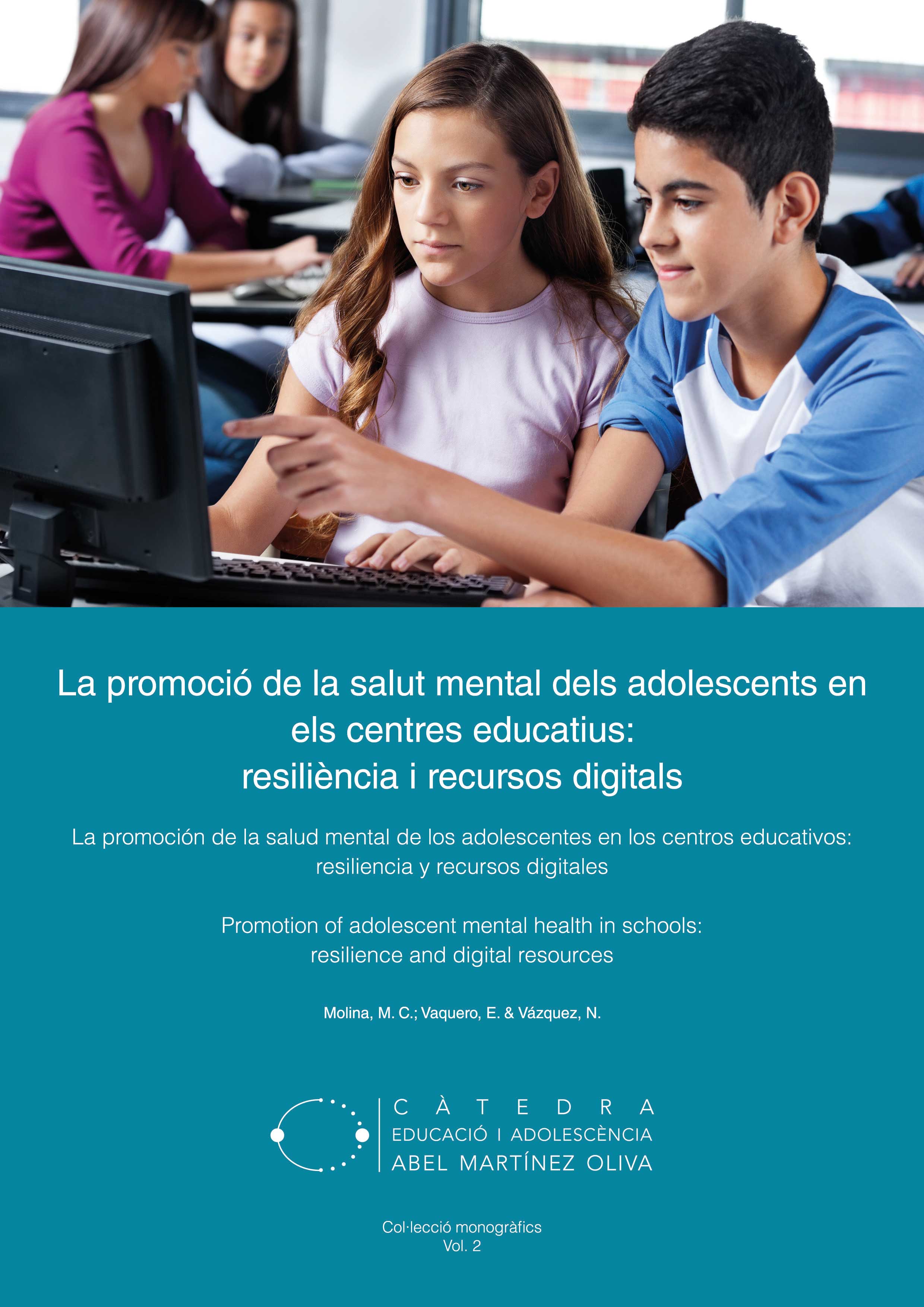
2nd monograph: Promotion of adolescent mental health in schools: resilience and digital resources
Molina, M. C.; Vaquero, E. & Vázquez, N.
In this paper decided to examine three important questions that arise from the confluence of the promotion of mental health of adolescents from the perspective of resilience in the school context, and the use of technological resources and resilient digital: a) how to promote mental health in adolescents from the perspective of resilience ?, b) how to promote the mental health of adolescents in schools? and c) how it can contribute to the promotion of mental health, the use of technology and digital resources? To answer these questions has raised a literature review in order to explain the current state of knowledge in a field or area, identify new research questions and conduct guidelines and recommendations for policy and practice.
Topics: Promothing health | Information and communication technology (ICT)
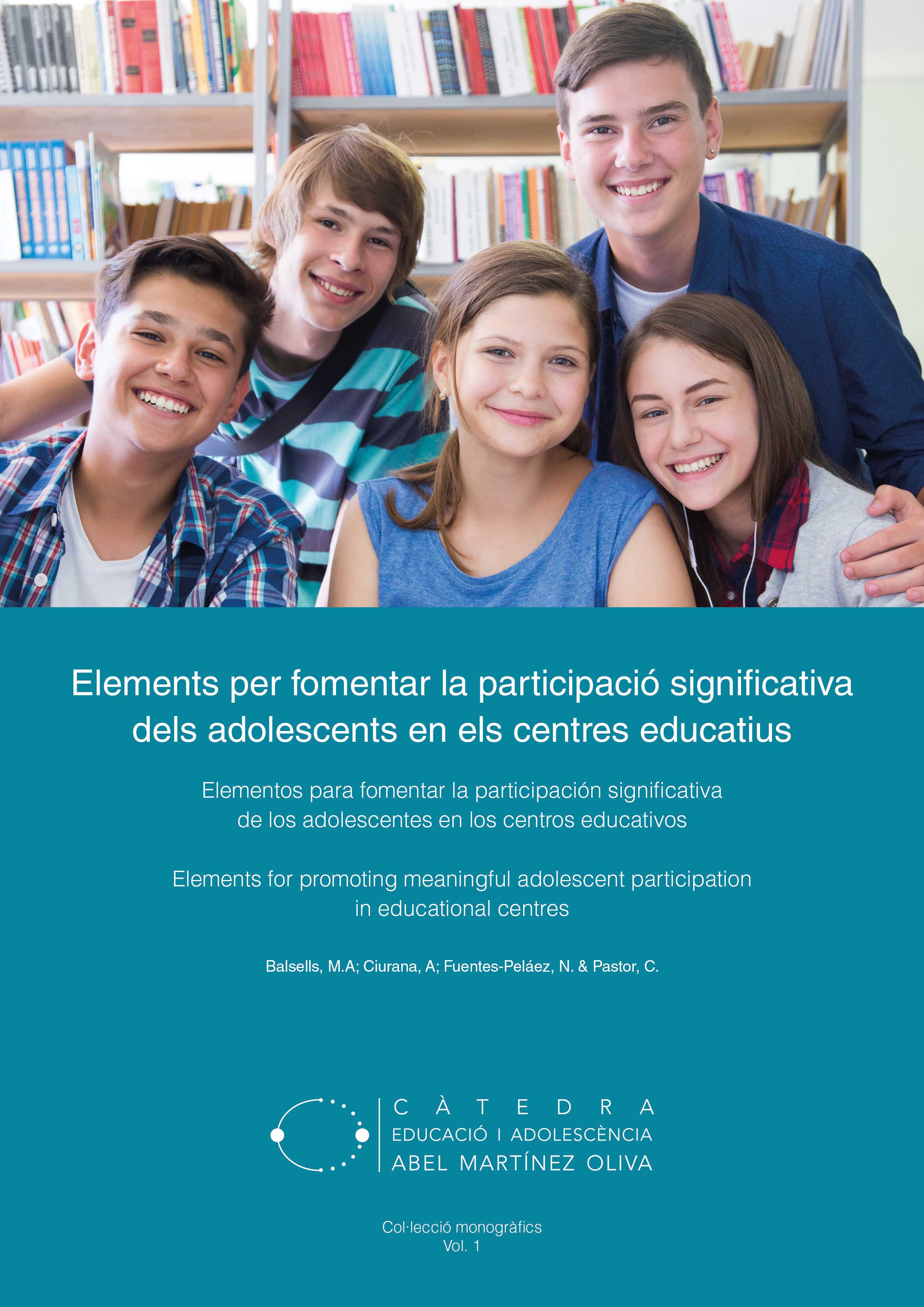
1st monograph: Elements for promoting meaningful adolescent participationin educational centres
Balsells, M.A; Ciurana, A; Fuentes-Peláez, N. & Pastor, C.
The meaningful participation of adolescents in institutions is a relevant topic in educational practices, as well as current educational research. Despite efforts to increase this participation are proliferating in schools, some authors consider them to be insufficient and are committed to continue working towards more participatory educational institutions and enhancing the flow of the “voice of the students.” In this respect, the monograph is cross: a) what elements are relevant to teenagers to participate actively and significantly in organizational life of its educational institutions ?, b) how relations should be educational to facilitate participation adolescents in the management and organization of schools? c) What are the characteristics of schools significantly enhance social participation of adolescents?
Topic: Adolescence and family
